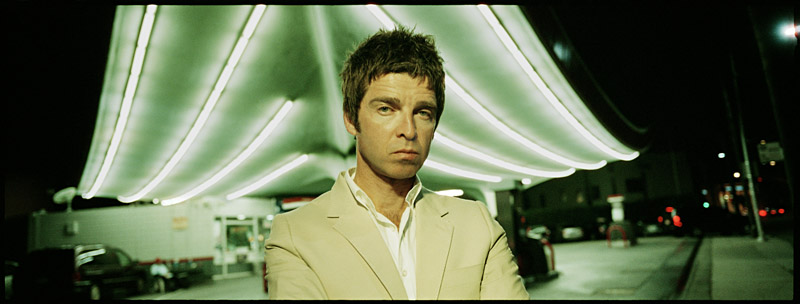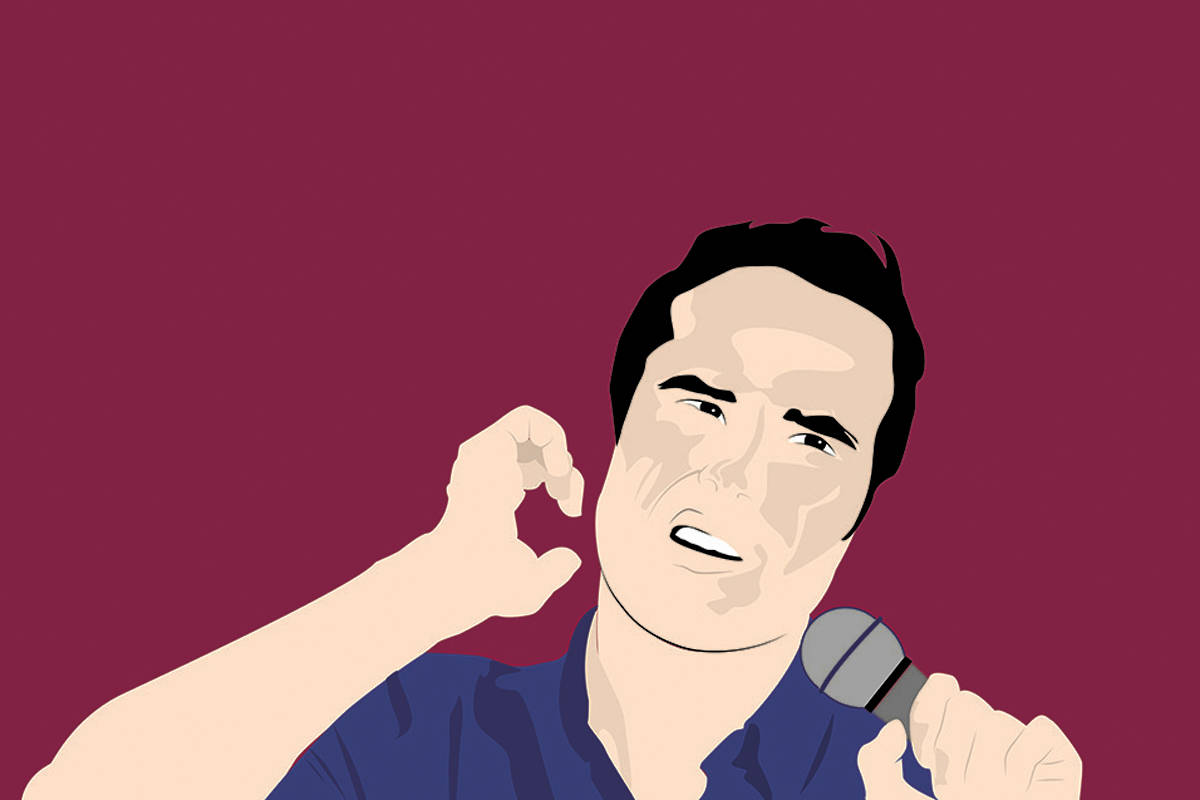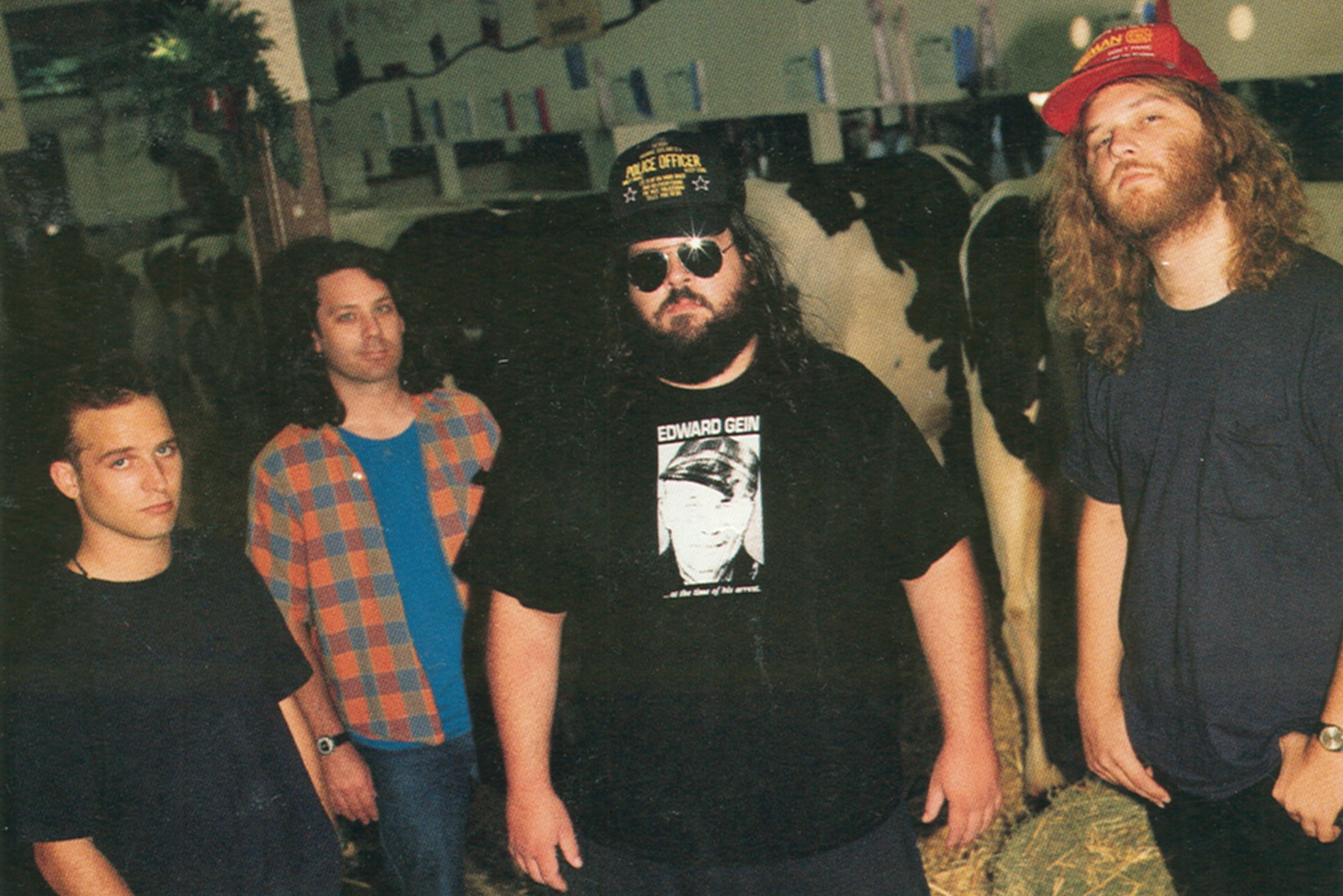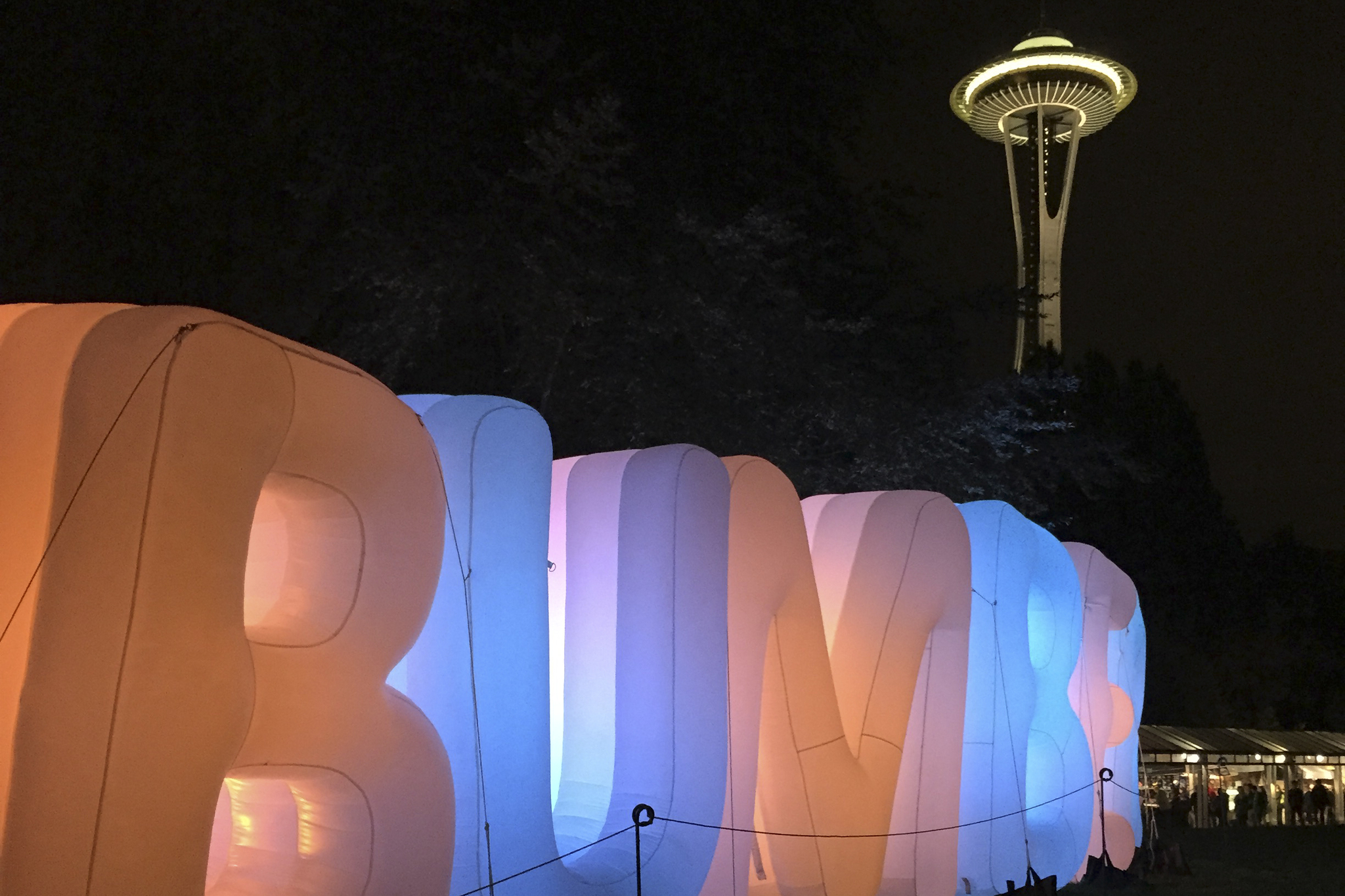Let’s get this out of the way: Ben Gibbard isn’t going solo. Just because the Death Cab for Cutie frontman is releasing Former Lives, his first collection of solo material, does not mean the Bremerton-born singer/guitarist wants to be Sting or Phil Collins or Fergie. He merely wanted to present the songs he’s accumulated over the past few years that hadn’t fit onto Death Cab albums. That’s it.
Noel Gallagher has gone solo. When Oasis split up in 2009, Gallagher’s brother Liam formed Beady Eye with the remaining members, leaving Noel, the band’s primary songwriter, to become the frontman of his own group, High Flying Birds, whose self-titled debut was released last year and which hit #1 in the UK. But where Gibbard’s solo debut (out Tuesday) strays from his famous band’s signature sound, Gallagher (who plays WaMu Theatre on the 24th) sticks with what has resonated with Oasis fans.
“Do you know what the enemy of music is?” Gallagher said in a recent phone interview. “Interesting. Elvis wasn’t interesting. The Sex Pistols weren’t interesting. The Beatles weren’t interesting. They had something that was fucking real and dealt with emotion. Do you know who’s interesting? Björk. Interesting is fucking ridiculous. It annoys me.”
With Death Cab still together, Gibbard’s decision to make an album that explores the boundaries of his songwriting comes without risk. A badly received solo record isn’t going to tank the band’s reputation—but Gallagher isn’t afforded the same luxury. With Oasis kaput, the 45-year-old musician risks everything should he decide to go the way of Blur’s Damon Albarn instead of staying the course. Albarn has been a musical chameleon since cooling things with Blur, but seeking a new identity is not something Gallagher is particularly interested in. Rather, he wants to make the kind of music his fans have come to expect: stadium-ready Britpop anthems built on the foundation used by his famous Manchester group.
“I think people that make challenging music are given too much credibility,” Gallagher says. “Write a fucking song that means something to someone, never mind leaving yourself chewing a carrot at 4 o’clock in the morning.”
Gibbard’s Former Lives utilizes an expanded palette, including a pedal steel guitar, a mariachi band, and three-part harmonies, but it’s not only instrumentation and arrangements that set the album apart from Death Cab’s. Gibbard and producer Aaron Espinoza of the band Earlimart holed up in Los Angeles, 1,000 miles from rainy Seattle; the city’s sun and sea leached into Gibbard’s usual melancholia. Even “Teardrop Windows,” a song about the receding splendor of Seattle’s Smith Tower, sounds downright hopeful with its Big Star–inspired chords and melody. When was the last time you thought of Alex Chilton while listening to Plans?
“When we’re putting together a record,” Gibbard said about his work with Death Cab, “we tend to be playing to a certain mood lyrically or musically, and sometimes what I would consider a perfectly good song goes homeless for a while. A lot of these songs are more indicative of my record collection than [of] the mission statement of the band. Some of it sounds like ELO and the Beatles, and that’s just not what Death Cab does.”
Rhett Miller, the primary songwriter of Dallas alt-country band the Old 97’s, has been releasing solo albums in parallel to his band’s career for a decade, touring as both a successful solo act and as a band member, sometimes on the same shows. Unlike Gibbard’s, however, Miller’s solo records mine territory similar to that of his band work, resulting in albums that sound like the Old 97’s without the twang—which isn’t necessarily a bad thing, though it doesn’t do much to expand Miller’s brand.
The appeal of a solo career isn’t just about artistic control. It’s about not having to battle egos; about keeping more of the money; about operating as a dictatorship instead of a democracy. During a No Doubt hiatus, Gwen Stefani made a pair of multiplatinum records that turned her into a superstar and promoted her clothing label. Bon Jovi guitarist Richie Sambora recently released a solo album on hip L.A. indie Dangerbird Records, home to Fitz and the Tantrums, Silversun Pickups, and (ahem) Beady Eye. Even Gibbard’s Death Cab bandmate Chris Walla released a solo record in 2008, though neither his project or Gibbard’s was intended to be some big commercial endeavor. “If making money and chasing success was my sole reason for doing music,” Gibbard countered, “I probably would be doing The Postal Service right now.”
In a sense, however, Gibbard has gone solo, even if he’s not chasing success or focusing on a solo career full time. He’s mounting a month-long tour to support Former Lives in conjunction with a major publicity campaign, which is no different from what Gallagher is up to. The prolific Gibbard has stayed busy with musical pursuits throughout his career, from The Postal Service to ¡All-Time Quarterback! and his 2009 collaboration with Son Volt’s Jay Farrar. His moves may not be calculated, but Gibbard has plenty to say musically—as he does frequently, even if this is the first album to bear his name alone.
Despite the differences between the two songwriters, Gibbard and Gallagher may not be as opposite as they seem on the surface. Maybe the pair could get even together and write a song for that second Postal Service album still owed to Sub Pop.
“He’s a smart guy,” Gibbard said about the former Oasis guitarist. “Noel Gallagher knows what Noel Gallagher is good at. He knows what people expect from him and he’s playing to that.”
You could say the same about Gibbard, even if what’s expected isn’t as easy to predict.








